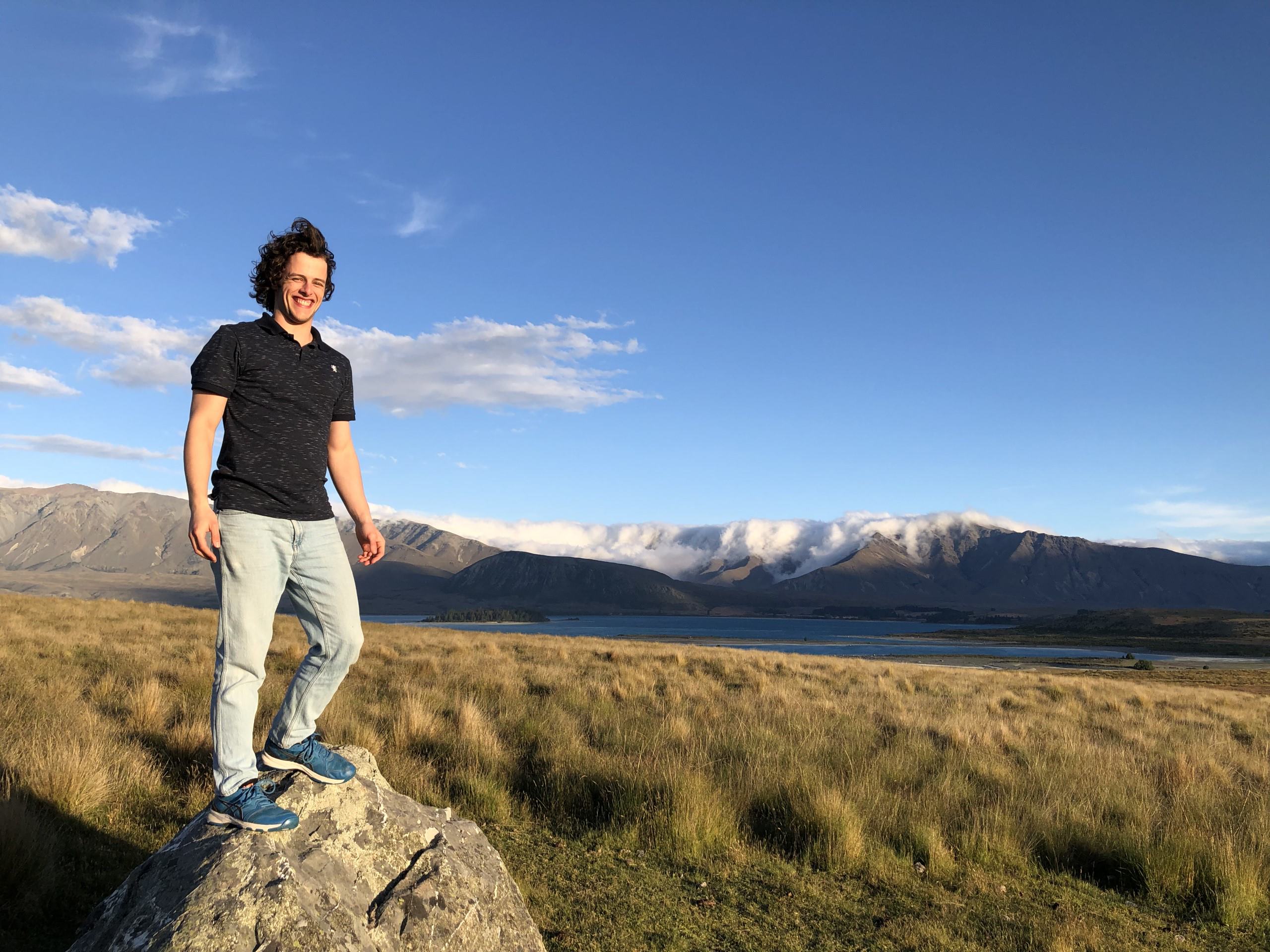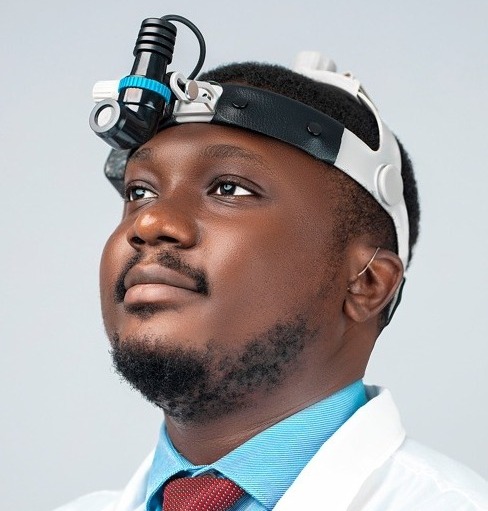
Updated hearing loss terminology you should know
July 4, 2022
My review of wearing a Phonak Naida Link M with a cochlear implant
July 11, 2022Deaflympics Gold medalist Ashley Derrington

Ashley Derrington, a Phonak hEARo and the Social Media Manager for HearingLikeMe.com, is also a business owner, world traveler, and public speaker. Now she can add Deaflympics Gold medalist to the list! She earned it as part of the US Women’s soccer team for the 2022 Deaflympics.
Hearing Loss Diagnosis
Deaflympics Gold medalist Ashley Derrington, 31, grew up in Atlanta, GA but has lived in Los Angeles, CA for the past nine years. Derrington was born with bilateral severe hearing loss, which was not diagnosed until she was two years old. Back then, newborn hearing screenings were not mandatory in the United States. Originally dismissed by doctors, her mother noticed she wasn’t talking or responding to sounds and took her to an audiologist. Derrington was fitted for hearing aids right away and immediately presented with a row of differently colored hearing aids.
Until only five years ago, Derrington wore the same red Phonak analog hearing aids that she got when she was a child. She currently wears a Phonak Naida V-SP in one ear and has an Esteem implant in the other. The cause of Derrington’s hearing loss remains unknown.
Growing Up with Hearing Loss
Derrington was mainstreamed growing up and attended public school with her peers. Her preferred method of communication is oral and speech reading. She is currently learning ASL and loving it. Growing up, she didn’t know anyone else with hearing loss.
“My only association with hearing aids was old people,” she says. “It wasn’t until I was working at the gym in college that I met someone my same age who wore hearing aids.”
When she reached the transition point between middle and high school, she became more self conscious of her hearing loss.
“When you’re young, you don’t think, ‘I have a hearing loss,'” she says. “You just know you wear these things (hearing devices) to help you hear. Kids otherwise think of themselves to be the same as their peers. I didn’t like the idea of being different or called out by teachers to see them after class to talk about the FM system. I was never bullied. I did everything I could to avoid that from happening, including wearing my hair down, working extra hard to get good grades, and excelling in sports and extracurriculars. I saw how those who were different were treated, and I refused to be treated that way.”
“I was never bullied, but I did everything I could to avoid that from happening, including wearing my hair down, working extra hard to get good grades, and excelling in sports and extracurriculars.”
In hindsight, she says, avoiding talking about her hearing loss was silly, but that’s how she felt in that period of her life. Once she got to college, she started to be more open about her hearing loss. When she began to pursue a career in entertainment, where talking on the phone is often necessary, she started to disclose her hearing loss to employers and self-advocate.
Still, she felt like she had to prove herself before she could reveal those details, she said.
Read more: How I teach self-advocacy to my hard-of-hearing children
Acceptance as Healing
The biggest change in accepting her hearing loss came with a great tragedy in Derrington’s life.
“Losing my sister forced me to look at myself differently,” she says. “I realized how short life is and that I couldn’t spend my life hiding from this thing that was such a big part of me. I would say ‘yes,’ that acceptance of my hearing loss has allowed me to be more comfortable with myself, though I will say it’s still an ongoing journey.”
Read more: How losing my sister helped me be more open about my hearing loss
“Some days I love myself more days than others,” she says. “And in losing my dad recently, too, it’s got me reflecting on things yet again in a different way. Both my sister and my dad played such big roles in my family and in my life that I’m now challenged to think more of who I am.”
Lifelong Love of Soccer
Derrington started playing soccer at age five. Her parents signed her up for every sport and let her choose which one(s) she wanted to play. At first she hated soccer. But when a new girl with a family of soccer players moved into her neighborhood, they played kick back all the time. This sparked a renewed interest and signed up for leagues and a club team.
One of those club team coaches became the head coach for the U.S. Deaf Women’s National Soccer Team (USDWNT). He reached out to Derrington to join. She declined because she was in the middle of her move to L.A. and was busy with internships, but they kept in touch.
Six years ago, Derrington joined the USDWNT, first attending soccer camp. This camp requires an invitation and for players to cover the costs for attendance and transportation. It was her first time spending a lot of time around others with hearing loss.
“It was – and still has been – a truly life changing experience to know and be around others who know what it’s like living in a world not built for you,” she says. “It’s a safety and comfort that I don’t get in many other places in my life.”
Deaflympics Gold Medalist
The USDWNT has won every international game they’ve competed in since their conception. They’re automatically invited to participate in every international event and qualified for the Deaflympics. The player roster for the team is selected based on whether fundraising goals are met, camp attendance and performance, and player availability.

“Having the medal placed over my head was a truly surreal moment,” the newly minted Deaflympics Gold medalist recalls. “Having everyone reach out and brag to others about it is kind of a weird feeling. I’m not used to that kind of recognition.”
Derrington says that the Deaflympics is a super unique experience to be around so many deaf people in one place, with many different oral and sign languages. As someone who loves to watch the interactions of others, Derrington loved being able to sit in the Deaflympic village watching people from all over the world converse with each other.
Read more: How playing in the Deaflympics introduced me to Deaf culture
Traveling and Working with Hearing Loss
Derrington runs her own business and works in market research and strategy. Previously she worked in the entertainment industry, supporting production of trailers, promos, behind the scenes, and TV spots. As someone who loves to travel, she has also figured out how to travel and work at the same time. She gets a lot of referrals and feels lucky that she hasn’t had to do self-marketing.
“I’m still trying to figure out what it is I actually do and what I want to do going forward,” she admits. “It’s a constant state of evolution, which can have its pros and cons.”
Read more: 4 Tips for working in an office with hearing loss
Derrington decided she would be upfront with clients right away about her hearing loss. More often, they’re intrigued by the perspective and work ethic she brings as a deaf person running a business.
“People still like me after I share the details of my hearing loss,” she says. “I used to think people would run for the hills if I said something.”
Deaf, Tattooed, and Employed
Derrington’s blog, Deaf, Tattooed, and Employed, is a passion project that she started as a way to explore her deaf identity. When she set out to travel, she decided she would write in conjunction with learning about deaf and hard of hearing communities in other parts of the world. The name came from her own identity of being deaf, tattooed, and employed – concepts that many don’t feel go together. She says it’s about breaking down stereotypes and stigmas.
“I’ve never been someone who has only one friend group,” she says. “I’m genuinely fascinated by people and always strive to learn more about others. I feel like we could all come together in better unity and compromise if we just took the time to listen to each other and be around each other. I have my travel friends, I have my soccer friends, I have my church friends, etc. Each has something different to offer. I always love bringing people together from those groups to watch them interact.”
“I feel like we could all come together in better unity and compromise if we just took the time to listen to each other and be around each other.”
Derrington says that traveling is such a vulnerable experience. Everyone she’s traveled with has something to share.
“It’s a very accepting space that I’ve never quite experienced anywhere else in my life,” she says. “Most things in life naturally surround you with people like you. For example, sports, school activities, classes, career path. The only thing you have in common with people you meet on the road (initially, at least) is that you’re both traveling. You quickly accept these people for exactly who they are, not who they feel like they must be to fit in somewhere.”
Read more: Traveling with hearing loss
The Beauty in Being Different
In 2018, Derrington talked about the beauty in being different and learning to have empathy for those who are struggling. When asked if that statement remains or if it’s amplified, Derrington notes that while it’s the same for her, the message has been amplified around her. The lockdown forced people to be really in touch with themselves and those around them.
“We’ve all had a difficult couple of years,” she says. “I think we’re all doing a much better job of holding grace and space for each other. My wish is that we continue on that path. It requires us to be more vulnerable and open for each other, but it also requires us to give people the safety and comfort to know they can do that.”
Understanding the Deaf Experience
The deaf experience is not something anyone who isn’t deaf or hard of hearing will ever understand, Derrington says, but it’s something others can learn about.
“Don’t be afraid to ask questions,” she says. “We will never evolve as a society if we’re always too scared to ask questions.”
Derrington also wishes that hearing people would understand what a unique perspective deaf people can bring to the world. And of course, take stock of the cliché, that “the only thing we can’t do is hear.”
After her momentous trip to the Deaflympics, Derrington is back in L.A. and working on her business, a passion project, and establishing a real estate investment portfolio. She also recently got a puppy named Denver who makes her smile and laugh every day.




